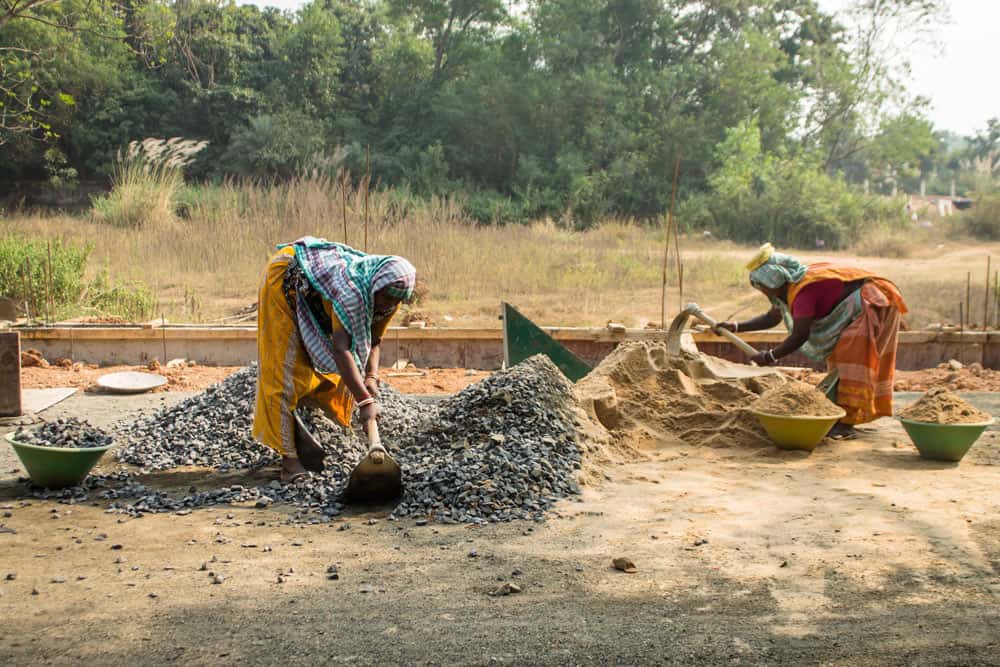Local value addition is one of the key issues in the Extractives and Development project of Germany’s Federal Institute for Geosciences and Natural Resources (BGR in German). The project focuses on construction raw materials and their local potential in developing and emerging countries.
Construction raw materials are typically low in price yet can boost local value addition. Thus, the Extractives and Development project estimated the size of the opportunity in India and Indonesia in a study conducted with Levin Sources. The value chain analysis of selected construction raw materials, such as sand, clay, and dimension stones, identifies environmental and socioeconomic market barriers, potentials, and opportunities to better understand the respective sectors. Due to population growth and urbanization, the study focuses on two urban centres: New Delhi (India) and Surabaya (Indonesia). The study matches mining supply to urban demand of construction raw materials within a 150 km radius around both cities.
Typical identified issues within the construction raw material sector are forced labour, child labour, gender and discrimination issues, operational health and safety, limited freedom of association and collective bargaining, unsanitary living conditions, corruption and bribery, smuggling, competing land uses, infrastructure damage, threats and violence, water depletion and pollution, deforestation, dust and carbon dioxide emissions, biodiversity impacts, and landscape modification, among others.
Identified market barriers include a lack of data, a lack of coordination between national and subnational governments, a lack of human resources and limited institutional capacity in subnational governments to monitor and regulate mining, complex value chains and fragmented supply chains, a lack of quality standards, and widespread informality.
To overcome these barriers, strong local content requirements are necessary. Additionally, the promotion of small and local businesses and harmonizing construction supply chains strengthens the sector.
The published study, Construction Raw Materials in India and Indonesia: Market Study and Potential Analysis, is preliminary in nature and relies on desk-based research, as the COVID-19 pandemic caused considerable disruption in conducting the research. Part 2 will presumably be published in 2021. We would be very happy to connect with anyone working in the construction materials sector.
Hannah Maul is a Research Associate in the Extractives and Development program at BGR and can be reached at hannah.maul@bgr.de.
The preceding is a guest blog and does not represent the views or opinions of the IGF Secretariat or its member countries.

